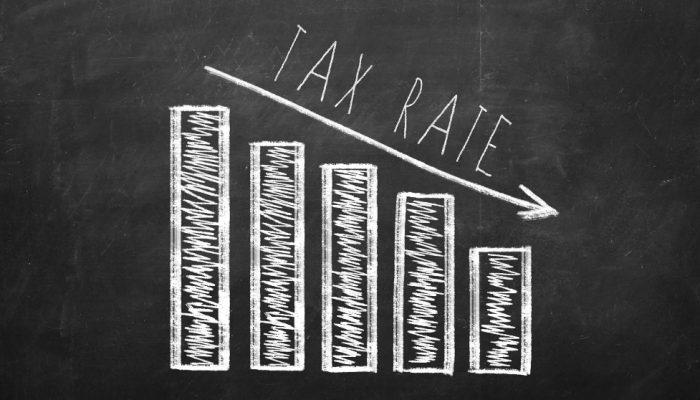Understanding PhiladelphiaŌĆÖs Business Double Tax and Its Economic Repercussions
PhiladelphiaŌĆÖs distinctive ŌĆ£double taxŌĆØ system imposes a dual layer of taxation on businesses, taxing corporate earnings initially and then taxing dividends distributed to shareholders. This dual taxation framework has sparked considerable debate, as many local entrepreneurs argue it imposes an excessive financial strain that hampers business growth and deters investment. Small and mid-sized enterprises (SMEs), in particular, often find their profits diminished by these taxes, limiting their ability to reinvest in workforce expansion, innovation, or infrastructure upgrades. Critics contend that this tax model is antiquated and ill-suited for todayŌĆÖs dynamic economic environment.
Major consequences for businesses and the Philadelphia economy include:
- Constrained reinvestment opportunities: A larger portion of earnings is allocated to tax payments rather than growth initiatives.
- Competitive tax disadvantage: Philadelphia companies face higher effective tax rates compared to businesses in nearby cities and states that do not impose similar taxes.
- Risk of business migration: Some firms contemplate relocating to avoid the double tax, which could lead to job losses within the city.
- Fiscal balancing act: While the tax contributes essential revenue for municipal services, it raises concerns about maintaining economic competitiveness.
| Business Category | Approximate Tax Burden | Typical Business Reaction |
|---|---|---|
| Small (less than $1M revenue) | 5%-7% of net profits | Reduce hiring efforts |
| Medium ($1M-$10M revenue) | 8%-12% of net profits | Postpone expansion projects |
| Large (over $10M revenue) | 10%-15% of net profits | Seek tax incentives outside Philadelphia |
Debate Over Repealing PhiladelphiaŌĆÖs Double Tax: Potential Advantages and Obstacles
PhiladelphiaŌĆÖs policymakers are actively debating the future of the contentious double tax, which requires businesses to pay taxes on net income at both the city and state levels. Advocates for repeal argue that removing this tax could stimulate economic growth by retaining existing businesses, attracting new companies, and fostering job creation. They emphasize that a streamlined tax structure would enhance PhiladelphiaŌĆÖs appeal to startups and established firms alike.
Conversely, opponents warn that eliminating the double tax could jeopardize critical city revenues that fund public services and infrastructure projects. The discussion also raises concerns about equitable outcomes, particularly for minority-owned small businesses that may be disproportionately affected by changes in tax policy. Key considerations in this debate include:
- Economic growth potential: Lowering tax burdens could enhance PhiladelphiaŌĆÖs competitiveness and encourage entrepreneurial activity.
- Revenue stability risks: The city might face budget shortfalls, necessitating spending cuts or alternative revenue sources.
- Fairness and inclusivity: Ensuring that tax reforms benefit a broad spectrum of businesses, including underrepresented groups.
| Prospective Benefits | Possible Challenges |
|---|---|
| Attract a wider range of businesses | Reduced funding for essential city programs |
| Increase employment opportunities | Potential budget deficits |
| Simplify tax compliance | Uncertainty in municipal financial planning |
Insights from Economists and Legal Experts on the Double Tax Issue
Leading economists and legal professionals have underscored the complex ramifications of PhiladelphiaŌĆÖs double tax on the local business environment. Economically, the additional tax layer can distort investment choices, hinder startup growth, and create an uneven competitive landscape compared to neighboring jurisdictions. Some experts caution that this tax may prompt businesses to scale back operations or relocate to more tax-friendly areas, which could diminish city revenues and reduce employment.
From a legal standpoint, the taxŌĆÖs complicated structure increases compliance costs and administrative burdens. Tax attorneys note that navigating overlapping tax obligations requires significant effort to ensure accuracy and avoid penalties. Furthermore, there are ongoing discussions about potential constitutional conflicts, as some argue the tax may violate state and federal regulations related to interstate commerce. The table below summarizes expert perspectives on the economic and legal facets of the tax:
| Dimension | Expert Analysis | Likely Consequences |
|---|---|---|
| Economic Effects | Potential contraction of business activity | Reduced job growth |
| Legal Complexity | Elevated compliance expenses | Heightened risk of litigation |
| Policy Considerations | Possible conflicts with interstate commerce laws | Calls for legislative reform |
Practical Advice for Philadelphia Businesses Managing Tax Responsibilities
Amid ongoing debates surrounding the double tax, Philadelphia business owners must remain proactive in managing their tax duties. Experts recommend maintaining detailed financial records and staying informed about both municipal and state tax requirements to avoid costly penalties. Engaging with tax professionals is crucial, especially as legislative changes loom, to optimize deductions and manage cash flow effectively.
Recommended approaches include:
- Consistently reviewing tax communications from city authorities.
- Adopting rigorous accounting systems to clearly delineate income sources.
- Investigating eligibility for tax credits or exemptions based on business size or sector.
- Participating in local business coalitions advocating for equitable tax reforms.
| Recommended Action | Expected Benefit | Suggested Timing |
|---|---|---|
| Consult a tax specialist | Ensure compliance and maximize tax savings | Immediately |
| Prepare for regular audits | Minimize unexpected tax liabilities | Continuously |
| Engage with advocacy organizations | Influence future tax policy reforms | As opportunities arise |
Conclusion: The Future of PhiladelphiaŌĆÖs Business Tax Landscape
As Philadelphia grapples with the complexities of its business tax framework, the controversy surrounding the double tax remains a critical issue for both policymakers and entrepreneurs. Gaining a comprehensive understanding of the taxŌĆÖs origins, effects, and potential reforms is vital for stakeholders invested in the cityŌĆÖs economic vitality. With legislative discussions ongoing and possible changes on the horizon, the resolution of this debate will play a significant role in shaping PhiladelphiaŌĆÖs ability to attract and sustain a thriving business community. For continuous updates on this evolving topic, stay connected with Inquirer.com.


